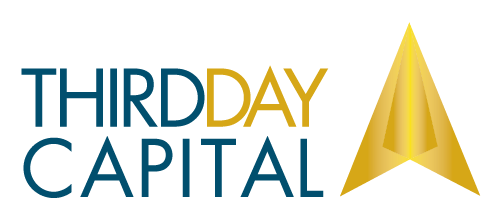 Why do we invest? A cursory review of popular financial media and financial industry marketing materials would lead one to believe that we invest because we want to “beat the market”. Whether it’s an index fund or other “passive” strategy claiming that the market can’t be beat (if you can’t beat ‘em, join ‘em), or an actively managed fund or strategy claiming the ability to “beat the market”, this concept of competition against ‘the market’ has become the foundational basis for the investment management industry. It’s a constant debate among professional and non-professional investors alike.
Why do we invest? A cursory review of popular financial media and financial industry marketing materials would lead one to believe that we invest because we want to “beat the market”. Whether it’s an index fund or other “passive” strategy claiming that the market can’t be beat (if you can’t beat ‘em, join ‘em), or an actively managed fund or strategy claiming the ability to “beat the market”, this concept of competition against ‘the market’ has become the foundational basis for the investment management industry. It’s a constant debate among professional and non-professional investors alike.
But is that why YOU invest?
We’re willing to bet dollars to donuts that you invest because you have goals in life that require financial resources. Retiring from full time work. Traveling. Sending your children to college. Buying a vacation home. The goals each of us have, and the idiosyncrasies of each of them, are as unique as our finger prints. In other words, 1 in 8 billion. Literally, one of a kind.
So if we have goals, how do we achieve them? If our goal is to get from our current location to another location, and we’re driving, what do we do? Pull up Google Maps of course. The app helps us navigate to our destination, with options because there are multiple ways to get to the destination. Avoid highways? No problem. Avoid tolls? No problem. Shortest distance? No problem. Shortest travel time? No problem. Want to stop by a pizza parlor on the way? No problem. When it comes to our financial goals, a financial plan is our Google Maps. We all have Google Maps (or Waze), so it stands to reason we all need to have a financial plan. But that’s not enough.
Our financial plan must produce a clear and actionable investment strategy, which is the route by which we reach our destination. And just as there are going to be (most likely) multiple cars on the road as we navigate to our destination, nonetheless, the exact route we take from point to point is unique. The same applies to your financial plan. While the financial plan you establish to get from where you are today to where you want to be tomorrow is unique, your plan will share certain elements with many other people. But not everyone. Which is why, just as your financial plan is unique, so too must your investment strategy be unique, specifically tailored to you and your goals and their inherent idiosyncrasies.
So what’s the point?
If your investment strategy is not custom-tailored to, and specifically a product of, your financial goals and your financial plan, you WILL face a higher degree of emotional stress during periods of market turbulence. Why?
Because, with the onslaught of financial media and marketing materials focused on “beating the market”, you’ll inevitably get sucked into that fallacious trap comparing your portfolio against the market. Not growing as fast as the market when things are good? “I’m not beating the market, my investment portfolio is failing. I need to change something”. Suffering a larger decline with the market’s swoon? “I’m not beating the market, my investment portfolio is failing. I need to change something”.
But if you have a solid financial plan, one that allows for market fluctuations, and an investment strategy that directly corresponds to your plan, then you can largely ignore the fluctuations in the financial markets, and more importantly, you can ignore whether your portfolio is doing better or worse than the financial markets. Whether you are “beating the market” or the market is beating you becomes irrelevant, because your goal is not to beat the market. Your goal is to get to a certain destination at a certain time.
So a good financial plan, coupled with a solid investment strategy that corresponds to your financial plan, will help you focus on how your portfolio is performing against your goals. It’s a reality check. It’s a sanity check. Are you making the progress you expected? Are you still on track to reach your destination on time?
Because there are ebbs and flows within your investment portfolio, there will be times when your portfolio is making rapid progress, and times when it’s not making rapid progress. But the times of rapid progress make the times of less-than-rapid progress much easier to process emotionally, because when the various ebbs and flows are evaluated together, it’s likely that you’re still making the progress you need to be making. Which helps you sleep well at night, even when your portfolio is making less than rapid progress. It’s like being stuck in traffic, but still having the confidence that you’ll get to your destination on time. Does it suck? Absolutely. Does it rob us of peace of mind? Perhaps for those who are just cantankerous by nature and inherently subject to road rage. But if the end result is still easily achievable, a slowdown or detour along the way shouldn’t derail our emotional peace.
The combination of the two, the nexus between the two, the necessity of both, offer peace of mind along the financial journey. And while everyone’s financial journey is unique, everyone shares one element – peace of mind along the way. It’s so easily within grasp, but so often overlooked in our current culture of financial competition.
Ignore the financial media and the investment industry’s marketing materials. Whether you do it by yourself or hire someone to help you, set your own goals, develop a personalized financial plan and investment strategy, and execute it. Drive to your destination along the route that makes the most sense for you.

